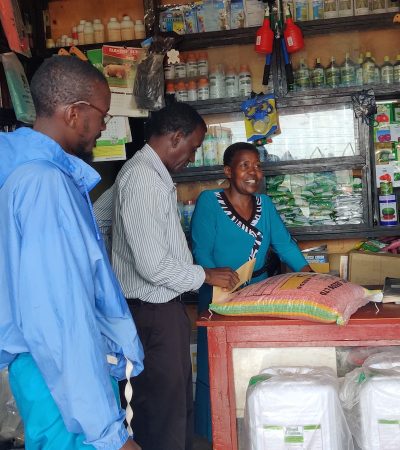Stella Oyuku is a 34-year-old mother of four and member of the Obol Neno Women’s Group in northern Uganda’s Oyam District – a region where livestock farming is an important economic activity, and a means to eliminate household poverty.
Oyuku had long hoped to save money and buy a goat that would produce milk and offspring that she could sell for income. However, banks and lenders were far from her community and, without financial education, her dream was very far from reality.
To help women like Oyuku, the U.S. Agency for International Development is supporting a Feed the Future activity that enables women’s groups to save their income toward the purchase of assets such as livestock or agricultural technologies. The project developed an approach called “Saving with a Purpose,” or SWAP, in which new group members sign a commitment card specifying the purpose of saving and the amount of money they intend to save per month in a group-managed fund. An executive committee monitors individual members’ savings to ensure they are on track, and when the target amount is met, the member receives the money and assistance to purchase the asset they require.
Oyuku had been a member of her group for two years, but in the past the saved money was distributed during the month of December and often spent on Christmas festivities and other non-economically productive items that did not contribute to improved livelihoods. With the introduction of the SWAP strategy, the group now distributes funds in January, which synchronizes with the start of Uganda’s farming cycle and school terms. This simple adaptation enables savings to serve as a driver of economic improvement.
“Between February 2013 and January 2014, I saved an average of six dollars per month,” says Oyuku. “After realizing my targeted amount of $65, I spent about half of the money on a goat.”
Oyukyu says members encourage each other to maintain financial discipline to meet their monthly savings obligations. “I now own productive assets like this goat and a wheel-barrow. Recently, I was able to borrow from the group and buy improved groundnut seeds for planting,” she says.
Access to formal credit in Uganda is not easy because of the high interest rates charged by commercial banks and microfinance institutions. Women rarely opt to borrow from formal financial institutions for fear of losing the hard-won assets they often have to declare as collateral in case of failure to repay. Local savings groups are thus a more supportive and lower-risk alternative to banks and lenders.
The SWAP approach has not only helped women acquire economically productive assets, but also accorded them an opportunity to have their voice heard at home. Men who recognize their wives’ new purchasing power are more likely to involve them in planning for the family.
“My husband, Denis, has also supported me to consistently save in the group,” Oyuku says. My in-laws appreciate my contribution to the family because of the assets I was able to bring into the household.”



